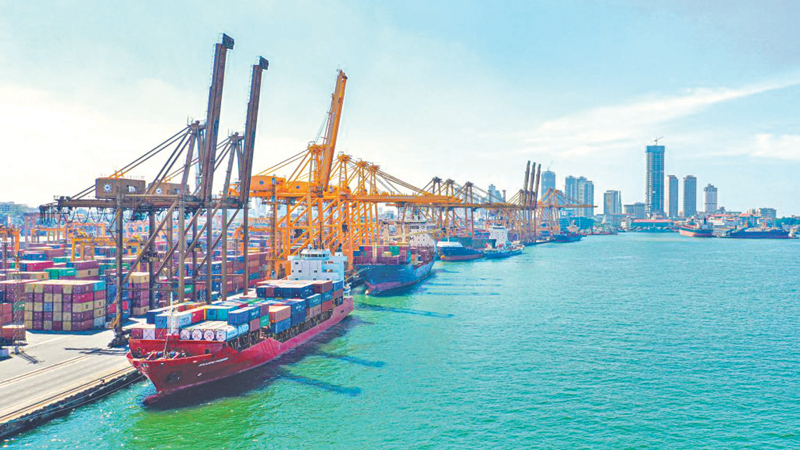As the maritime landscape continues to evolve, Sri Lanka must ensure that Colombo remains competitive. Collaborations with India and the Gulf region, combined with ongoing port modernisation, are key to this objective, said SLANA Chairperson Swabha Wickramasinghe at the eighth AGM of SLANA in Colombo last week.
Excerpts
“Looking back at our early days, one of the most pressing challenges we faced was when feeder operators announced that NVOCCs could no longer use their port codes. At the time, this posed a major disruption to our operations.
“However, what seemed disastrous became a turning point. It led to more streamlined collaboration between NVOCC operators and feeder operators, the introduction of a separate licensing category for NVOCCs, and direct access to port terminals for negotiating direct billing facility.
“Over the past year, we have seen remarkable progress and a stronger sense of community. From insightful knowledge-sharing seminars and valuable networking events to our inaugural SLANA Cricket Tournament, which was a tremendous success —each initiative has strengthened our bonds.
“These platforms not only recognise excellence in service but also provide you valuable opportunities to showcase your standards and raise awareness of your capabilities in the wider market. Participation in such events enhances your market visibility and adds real value to your business. “The growth of our individual businesses is only part of the equation. Our success is tied to a much larger ecosystem, an entire supply chain, and a broader community that relies on its sustainability.
“While most of our members fall under the SME category, we collectively contribute 15 to 20% of the country’s import and export volumes, along with a modest but impactful share of transshipment cargo. “As regional operators, we must remain vigilant and responsive to changes both locally and globally.
“Today, we have over 50 NVOCC agents, each representing multiple principals. While main line operators cover these trade lanes, NVOCCs also serve ports from China to the Upper Gulf, including Russia. “As Sri Lanka’s maritime landscape continues to evolve, we must ensure that Colombo remains competitive. Our collaborations with India and the Gulf region, combined with ongoing port modernisation, are key to this objective.
“However, we cannot ignore the challenges. One major concern for our members is the inability to collect Terminal Handling Charges (THC). A globally accepted practice that was previously implemented in Sri Lanka but has since been removed.
“This inconsistency places our industry at a disadvantage. It’s essential that we come together as a unified voice to strongly advocate for the reinstatement of THC collections he said.







